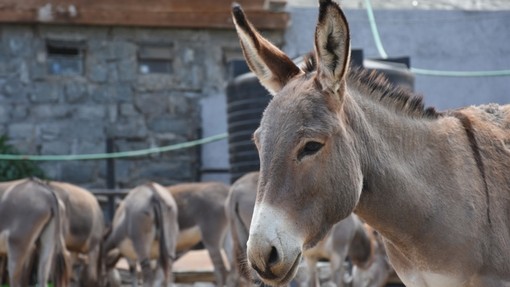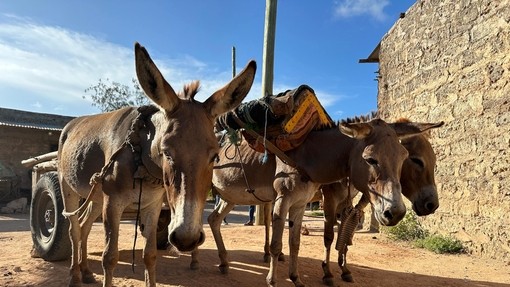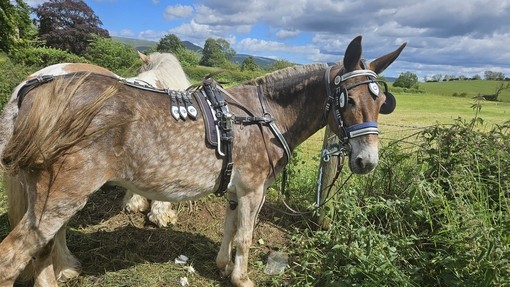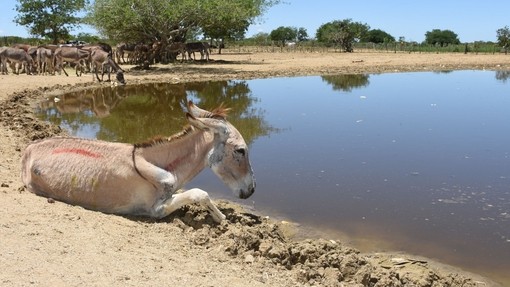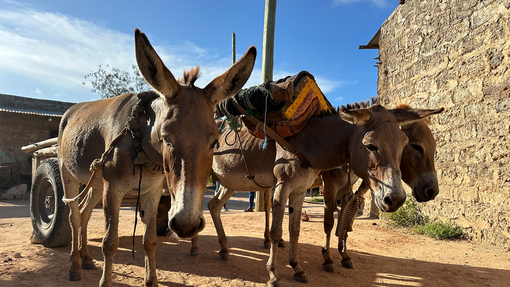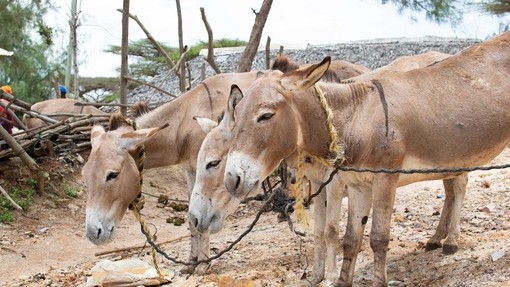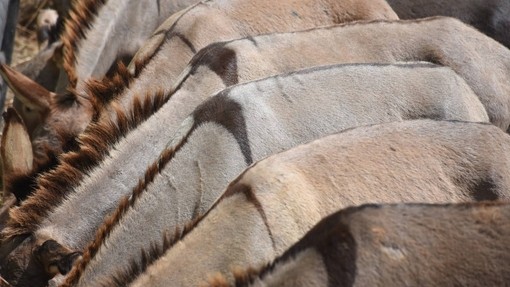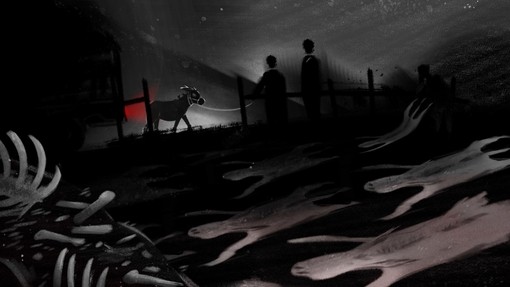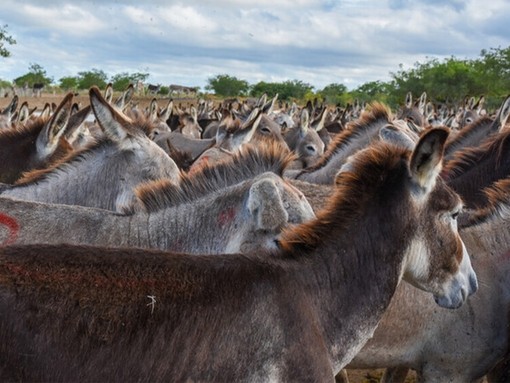
An opportunity to end the donkey skin trade in brazil
An estimated six million donkeys are slaughtered every year around the world to meet the growing demand for the Chinese remedy ejiao, which is made by extracting collagen from donkey skins. Latest figures reveal that in Brazil, the global trade in their skins has caused the donkey population to plummet by 61 per cent in less than a decade, from 974,688 in 2011 to 376,874 in 2017, with a further 231,934 donkeys slaughtered between 2018 and 2023, according to government data.
Adding to the urgency of this legislation is the recent discovery that Brazil’s northeastern donkey has a unique genome that only exists in that part of the world. If the slaughter of donkeys continues at the current pace, this irreplaceable animal could be lost forever.
The bill to prohibit donkey and horse slaughter has successfully passed both the Agricultural and Environmental Commissions in Brazil’s Congress and is currently being considered by the Committee on Constitution, Justice and Citizenship. The final step is the Senate where it is set to become law if agreed by the commission and sanctioned by President Lula.
We were joined by the Regional Council of Veterinary Medicine, universities and farmers across Brazil, in our calls for Brazil to make the commitment to pass the legislation before it is too late.
Speaking on the significance of the G20 summit, Campaign Coordinator at The Donkey Sanctuary, Dr Patricia Tatemoto said: “Brazil has an opportunity to show leadership, recognising the critical role donkeys play across South America and the Global South. Donkeys were once central to construction and agriculture across Brazil, and today still work alongside people living in remote regions.
“In fact researchers have discovered that Brazil’s northeastern donkey has a unique genome that only exists here. This important cultural and biological resource must be protected.”
Dr Chiara Albano, Professor at the School of Veterinary Medicine and Animal Science at the Federal University of Bahia, said: “With such great progress being made towards the global bioeconomy, there is simply no place for a trade that so clearly undermines our ambitious goals.
“Ending the donkey skin trade would send a clear signal of Brazil’s leadership of – and commitment to – the global bioeconomy, particularly in the Global South.”
In February 2024 all member states of the African Union agreed to a moratorium on the slaughter of donkeys for the purpose of exporting their skins and other products for at least the next 15 years. By implementing the ban, Brazil would join a growing movement across Africa and the Global South to end the donkey skin trade and in doing so, would effectively set out its stall for the bioeconomy.
Share this page
Tags
- News



